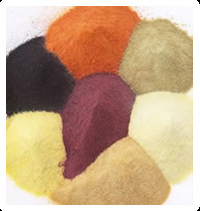Meadowsweet Purchase & Information

Alternative Names
Barbe de Chèvre, Barbe de Bouc, Bridewort, Dropwort, Dolloff, Filipendula, Fausse Spirée, Filipendule, Lady of the Meadow, Meadow Queen, Mariée de la Prairie, Meadow-Wart, Petite Reine, Queen of the Meadow, Reina de los Prados, Racine de Gravier, Reine des Prés, Reine de la Prairie, Spireae Herba, Spiraeae Flos, Spirée Ulmaire
Scientific Name
Filipendula Ulmaria
Why Do People Use Meadowsweet?
The oral preparations of Filipendula ulmaria (Meadowsweet), like meadowsweet powder, are used for colds, dyspepsia, rheumatic disorders including gout, bronchitis, peptic ulcer disease for heartburn issues. It is also orally utilized as a urinary and diuretic antiseptic for acute cystitis.
Is It Safe To Use?
Possibly Safe - Oral and appropriate consumption of meadowsweet is considered safe.
Possibly Unsafe - Typically, use of meadowsweet tea for prolonged time period or in large doses is considered unsafe. The reason is that there is high amounts of tannins in meadowsweet.
Possibly Unsafe in Pregnancy - Oral consumption of meadowsweet during pregnancy is considered unsafe. According to clinical studies, meadowsweet may stimulate uterine activity. This effect may come up with adverse effects for pregnant women.
Avoid in Lactation - Filipendula ulmaria should be avoided by breastfeeding females because there is scarce and unreliable information available in this regard.
How Effective Is Meadowsweet?
About the effectiveness of meadowsweet, there is scarce and unreliable information available.
How Meadowsweet Works?
The most effective parts of Filipendula ulmaria are the aerial parts. Meadowsweet is used as a mild urinary antiseptic, for stomach ache, as an antacid, astringent and for anti-rheumatic activities. It also contains salicin and tannins, which are plant salicylates. In animal models, all the above ground parts of meadowsweet lower body temperature, lessen motor activity, potentiate the muscle relaxant effects of narcotics. In animal models, the extract of flower may increase life expectancy, decrease vascular permeability, uterine tone, and promotes uric acid excretion. It also has bacteriostatic effects, based on in vitro analysis. Water extract of meadowsweet also contains high concentrations of tannins with potent astringent effects.
What Are The Side Effects /Adverse Reactions of Meadowsweet?
Meadowsweet powder can lead to various stomach complaints and nausea issues. With regular and oral usage of meadowsweet, bronchospastic effects have been reported. Salicylate is one of the active constituents of meadowsweet. There is insufficient and un-reliable information available about the possible toxicity and side effect caused by the salicylates. Side effects related with salicylates include hypersensitivity, renal and gastric irritation, tinnitus, blood in stool, vomiting and nausea. Salicin also leads to skin rashes in allergic individuals.
How Meadowsweet Interacts With Other Herbs and Supplements?
Not known.
How Meadowsweet Interacts With Drugs?
Aspirin - Interaction rating between meadowsweet powder and drugs like aspirin is moderate, so be careful about this mixture. There is salicin in meadowsweet, a plant derived salicylate Meadowsweet may also have additive impacts with other drugs with salicylate element, aspirin is the best example of such drugs. Salicin doesn't appears to have the antiplatelet effects of aspirin.
Choline Magnesium Trisalicylate (Trilisate) - Interaction rating between meadowsweet and Choline Magnesium Trisalicylate (Trilisate) is moderate, so be careful about this combination. It contains of salicin and tannins. Meadowsweet may have an additive reactions with different drugs containing salicylate, for example choline magnesium trisalicylate.
Narcotic Drugs - Interaction rating between meadowsweet and narcotic drugs is moderate so be careful about this mixture. Meadowsweet can potentiate narcotic impact in various individuals.
Salsalate (Disalcid) - Interaction rating between salicylate containing drugs and meadowsweet is moderate, so be careful about this mixture. Meadowsweet shows to have additive activity with other drugs containing salicylate such as salsalate.
How Meadowsweet Interacts With Foods?
There is no known interaction of meadowsweet powder and various food items.
How Meadowsweet Interacts With Lab Tests?
Filipendula ulmaria doesn’t seem to interact with the results from lab tests.
How Meadowsweet Interacts With Diseases and Conditions?
Aspirin Allergy - Meadowsweet powder should be consumed after the recommendations of your health advisers, especially in individuals with aspirin allergy because it contains salicylate constituents.
Asthma - Filipendula ulmaria may exacerbate asthma because it has bronchospastic impacts. For patients suffering from asthma, they should use any preparation of meadowsweet after the recommendation of their healthcare provider.
What Should Be the Dose/Administration of Meadowsweet?
ORAL
• For adults, general dosage is one cup of the tea several time per day. Such tea is made by steeping 2.5 to 3.5 grams of the dried flower or 4 to 5 grams of the aerial parts in 150 mL boiling water for ten minutes and then straining.
• The typical dose of the water extract (ratio of 1:1 in 25% concentrated alcohol) is 1.5 to 6 mL thrice daily.
• As tincture, meadowsweet (ratio of 1:5 in 45% concentrated alcohol) is used within the ratio of 2 to 4 mL thrice daily.
Comments
None.
General Certificate of Analysis (COA)
Specification sheet links below are a standard copy of the COA less the batch or lot number and manufactures dates. Specification sheet can be dated and should only be considered as a general information. Please contact and request an up to date COA if needed for specific updated information before placing order by filling out the contact form with product name and SKU number. If ordering quantities of twenty five kilos or more contact for availability.
